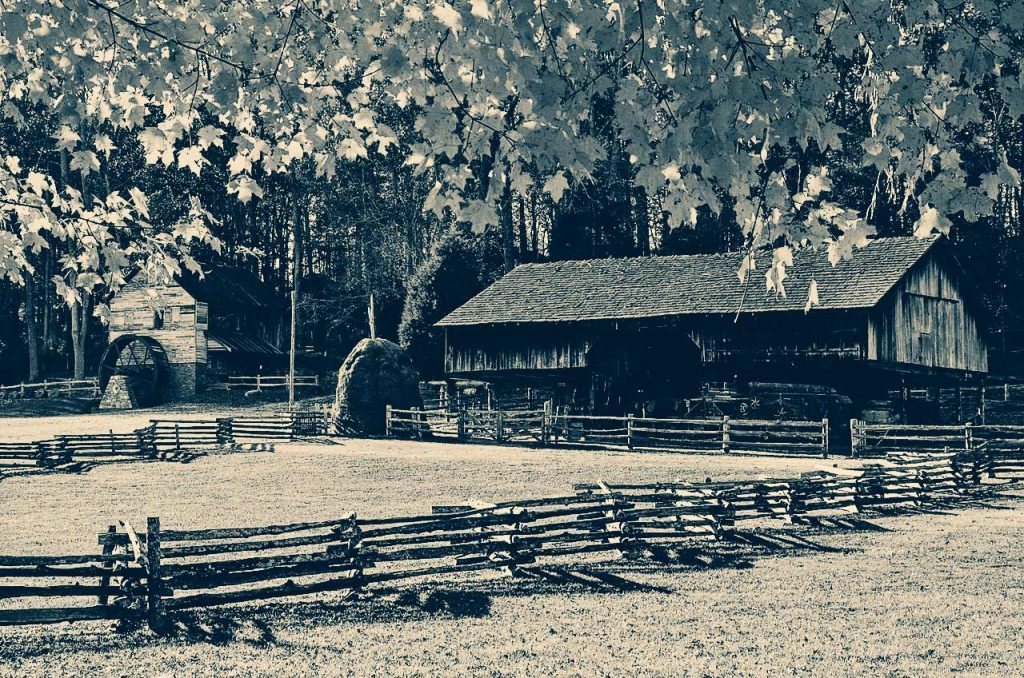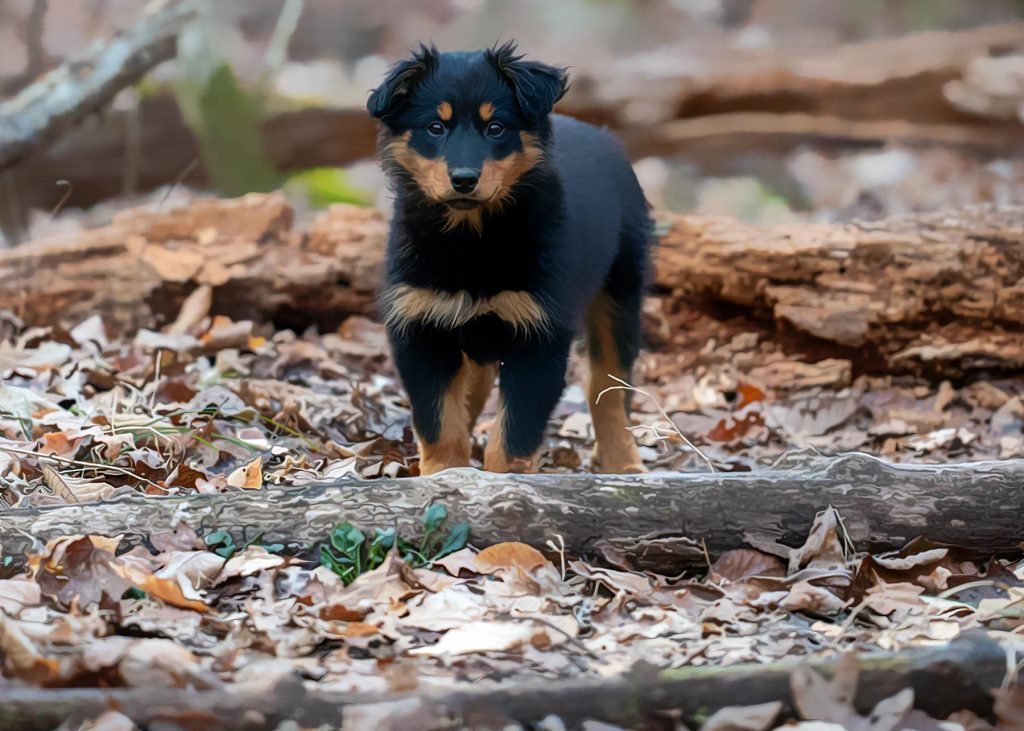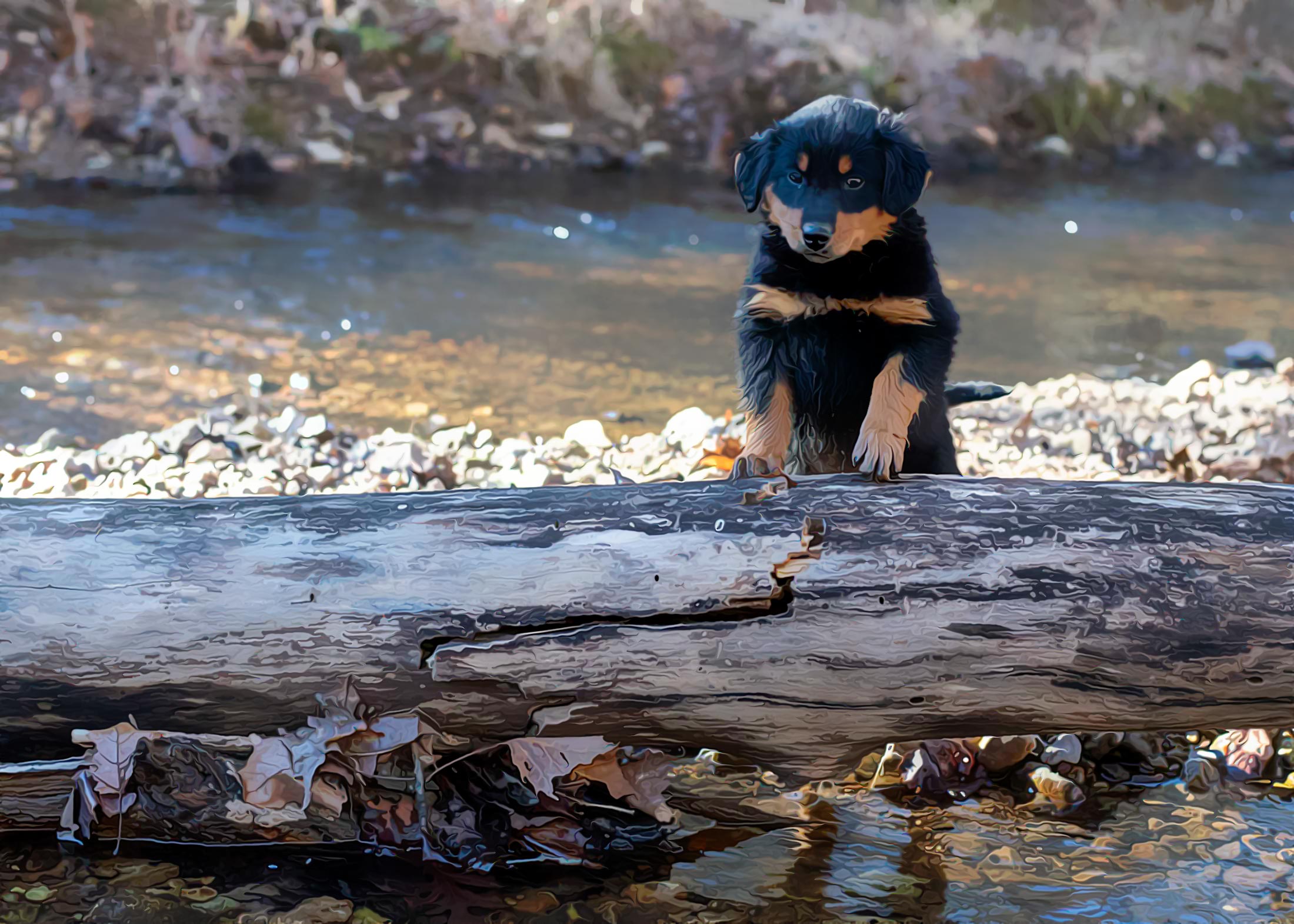When I was a boy, my family operated a small general store. Part of my duties was to deliver goods to nearby homesteads and settlements. By far, my favorite delivery was to Mr. Bridges’ place. The Bridges’ lived on Factor’s Fork, where the old Natchez Road crosses Shoal Creek. Mr. Bridges himself was an older man when I met him, with streaks of gray creeping into his hair and beard. His wife did not get around much anymore, confined to a rocking chair near the hearth. To my young perspective, she looked much older than him. She seemed to contend with a nagging illness, but I did not feel it was my place to ask. Mr. Bridges himself still got around well for a man his age. He always told me that the path to long life was to keep moving. I would tarry at his homestead while I listened to his stories and lessons. Sometimes he would tell me of his grown son, who had traveled far but rarely came back home to visit his own parents. Every six months or so, Mr. Bridges would have me stand tall with my back against the frame of his cabin’s front door. Then he would take out his hunter’s knife and cut a notch right above the top of my head. Mrs. Bridges would watch from her rocking chair near the hearth, smiling in approval as she looked on. The years passed and the notches accumulated, climbing further up the wooden door frame.

By far, my favorite part of the Bridges’ place was his dogs. On the frontier, dogs were as important to a pioneer as any other animal he possessed. Every settler I delivered supplies to owned from three to five dogs, and some had even more. A settler’s dogs were indispensable watchguards against bandits, hostiles, and prowling beasts. Bears, panthers, wolves, and smaller animals of prey were thick on the frontier. Small livestock such as pigs, lambs, and poultry could be completely wiped out in a single night. Those dogs were on guard rain or shine. The best dogs knew danger by smell. Well before seeing or hearing a threat, a good dog would give out a warning. Usually long before the pioneers themselves could have known. Mr. Bridges kept two female dogs and one male. Each animal had a glossy black coat, a tan spot above each eye, and a tan bar across its chest. They were medium size, strongly built, active dogs. I learned that Mr. Bridges referred to his male dog as Shadow. Shadow weighed about sixty pounds on a long, lean frame. The two females were a few inches shorter than Shadow and weighed about fifty pounds each. Mr. Bridges called them Bramble and Ranger. The girls were indistinguishable to me, all but identical in size and appearance.
To survive on the frontier, a homesteading man and woman kept busy from dawn to dusk. That was especially true for Mr. Bridges. With a sickly wife and the onset of old age, there were not enough hours in the day for him to get things done. But Mr. Bridges loved his dogs and found time to work with them as best he could. On occasion, he would tell me to fetch a length of hemp rope from the shed and he would put his arms behind his back. I would take the rope and tie his hands together. “Make sure it’s good and tight”, he would always say. Mr. Bridges would split his firewood on a large white oak’s stump in his cabin’s front dooryard. After I tied his hands, he would walk over to the stump, sit down and call Shadow. “Shadow, untie me,” he instructed. Shadow would start working the rope. If the dog got too enthusiastic and started to gnaw on the hemp, Mr. Bridges would chide him “Shh, shh, shh. Untie me,” in a soft voice. Shadow would stop gnawing and go back to working the knot. It was an amazing sight to see that dog untie that rope. It never got old.
One day, I waited until after Shadow had untied him and Mr. Bridges had gone back to doing his chores. Finally, I worked up the courage to asked him why he called his black and tans Natchez Dogs, and where he had got them from. “About eight or ten years ago,” he began, “I worked for a ferryman at a spot not too far south of here. It was where the old Natchez road intersects a narrow but deep spot in the river. The flatboat could carry four horses or a four-horse wagon with its load at one trip. The ferryman charged fifty cents per horse, and twenty-five cents per person. One morning, a Scots-Irishman and his pregnant wife came to cross the river. They were trying to make it to his brother’s place down near Natchez City before the wife gave birth. But they had run into a spate of bad luck on their journey and had run low in funds. They carried with them two young dogs. With some reluctance, the man offered to barter the pups for passage across the river. The ferryman was not inclined to accept the offer, having no use for the dogs. But something about the pregnant couple and their hardship pulled at my heart. So, I offered to pay for their passage. After crossing, the Scots-Irishman brought his dogs over to me in exchange for the ride. I told him I only needed one dog and let him keep the other. In gratitude, he shared with me the name of his brother in Natchez City and told me that he owed me a dog. In a few years, he said, you will see his worth and want to breed him. If you are so inclined, come down to my brother’s place and I will have another dog waiting for you.”
“He was right about Shadow’s worth, so after a few years I took him up on his offer. I traveled the old Natchez road down to where his brother lived. The Scots-Irishman and his wife welcomed me and showed me their young son. They were kind to me, and grateful of the favor I had done for them. True to his word, the man gave me not one but two bitches from a litter his brother’s dog had whelped. It turns out that his family had kept these same black and tan dogs for generations. His grandparents had brought them over from the old world. The Scots-Irishmen called them shepherd’s dogs. They claimed they were the best all-purpose dogs in the world. I tend to agree with them,” Mr. Bridges concluded.
In the spring of my fourteenth year, Bramble whelped a litter of puppies. The only problem was, she had gone off into the woods to have her clutch. For weeks, Mr. Bridges could not find where she was hiding them. Finally, I resolved to find them on my own. Mr. Bridges had told me that Bramble was coming back to the cabin once or twice per day to eat. I deemed that those feeding times would be my best chance. I started going over to the Bridges’ homestead right at dawn. I hoped to catch Bramble eating a morning meal. My plan was to follow her back into the woods and hope she would lead me to her pups. Each morning, I laid out some scraps and waited. Finally, on the third day, my timing worked out. When Bramble finished her morning meal, I crept along at a good distance behind her. She led me into the woods and down to a small cave near the creek. There, outside a cave opening no bigger than a sack of flour, were three half-wild black and tan pups. One pup had a stick in his mouth and was running around as the other two chased him. When he dropped the stick, a sibling would pick it up and the game would start anew. As soon as Bramble showed up, the three pups stopped playing and ran to her for a well-earned meal. While she nursed them, I looked on from behind a briar bush. After about twenty minutes, the pups passed out in the leaves for a nap. I crept in close enough to nab two of them before they had a chance to wake up. The third pup escaped my best efforts, so I placed the first two into a burlap sack and headed back to Mr. Bridges’ place. Back at the cabin, I explained to Mr. Bridges where Bramble’s den was. Then I pulled the pups from my satchel and presented them to him. He was happy to see them, and I was glad to see him pleased. He estimated that the pups were about five weeks old. He took a closer look and determined the pair consisted of a male and a female. To my surprise, Mr. Bridges asked me what I was going to name the male pup! After some thought, I concluded to name him Shag.

From that day forward, Shag and I were inseparable. In the early days, I carried him with me on the delivery wagon while I made my rounds. I rigged up a woven basket with a lid and placed some straw in it. I fed him goat’s milk and meat scraps. He grew strong, as did the bond between us. He began to consider himself co-owner of any supplies on the wagon. At delivery stops, he would stay on the wagon as a watch guard. According to Shag’s rules, no one was allowed to take from the wagon’s cargo except me. He even decided that the horse, saddle, spurs, gun, and everything else of mine was now held in joint custody with him. He was good-natured with folks, but they could not step on, sit on, lay on, or otherwise take liberty with our stuff. He was fond of playing with other dogs, so long as they took no freedoms with our joint property. If I dropped an article, he would pick it up and bring it to me or place it where he thought it belonged. If I lost an item, he would go to almost any distance to find it and return it to me. At night he slept next to my bedroll, which he also co-owned.
Shag was a good retriever, both on land and on water. He would cross a river to get a duck or a goose if it felled on the opposite shore. He would take hold of one leg of a deer and help me all he could to drag it back to the horse. He carried cut wood and kindling to the fire, both at home and at camp. But more than in any other way, Shag was of great help in the driving and handling of stock. He would bring the dairy cows in for milking, and he brought the sheep and goats back to the barn at night. He would go after a horse, catch him by the rein or rope, and bring him back if he could lead him. If the horse was not haltered or would not be lead, he would try to hold him until I could come.
My life was forever changed through my experiences with my first best friend. I learned from him in ways that I cannot even put to words. Shag knew how to make the rote, mundane chores of each day brighter. With a sparkle in his eye and a wag of his tail, he could make a simple walk in the woods seem like a great adventure. From the day we met, until the day I laid him down, Shag never allowed himself to be more than a few feet away from me. And all it ever took was a glance in his direction for him to come to my side. I have never known a greater friend or a more loyal companion. Even though many years have passed, I still take joy in sharing my cherished stories of our life together.

